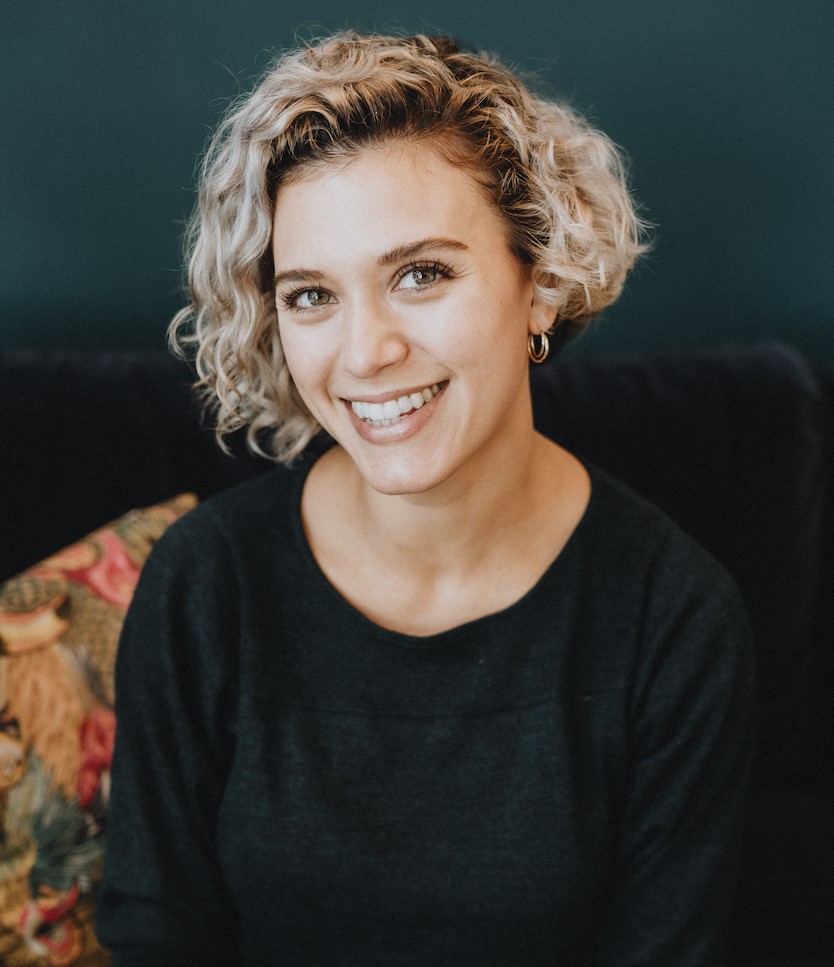Testimonials

Shuli, Roots workshop participant
Dear Saskia,
I wanted to share with you a meaningful moment I experienced last week, I hope I can express it in English.
We were driving around Tekoa and were stuck behind a slow truck. A Palestinian truck that had a print of a bride: A Palestinian young woman with a big head scarf, of the same sort our friends in the workshop were wearing. I found myself staring at it (while diving slowly...) with a warm heart and a sense of intimacy.
In that moment I realized how deep and basic it is what you gave us in your workshop: intimacy.
We didn't talk about deep or highly important subjects, but we looked closely at each other's faces, clothes, and bodies, we became aware of details. This is something I never had the chance to do, nor ever had a thought of the importance of doing it.
Palestinian people are strangers, distant, unfamiliar to me. Even if I don't regard them as enemies anymore, they are still very far. Now I looked at this foreign woman on the picture and felt physically and emotionally close to her because of her big scarf and strong makeup. I subconsciously recognized these as familiar to me. It made me happy and raised my belief that step by step change can happen.
Thank you!
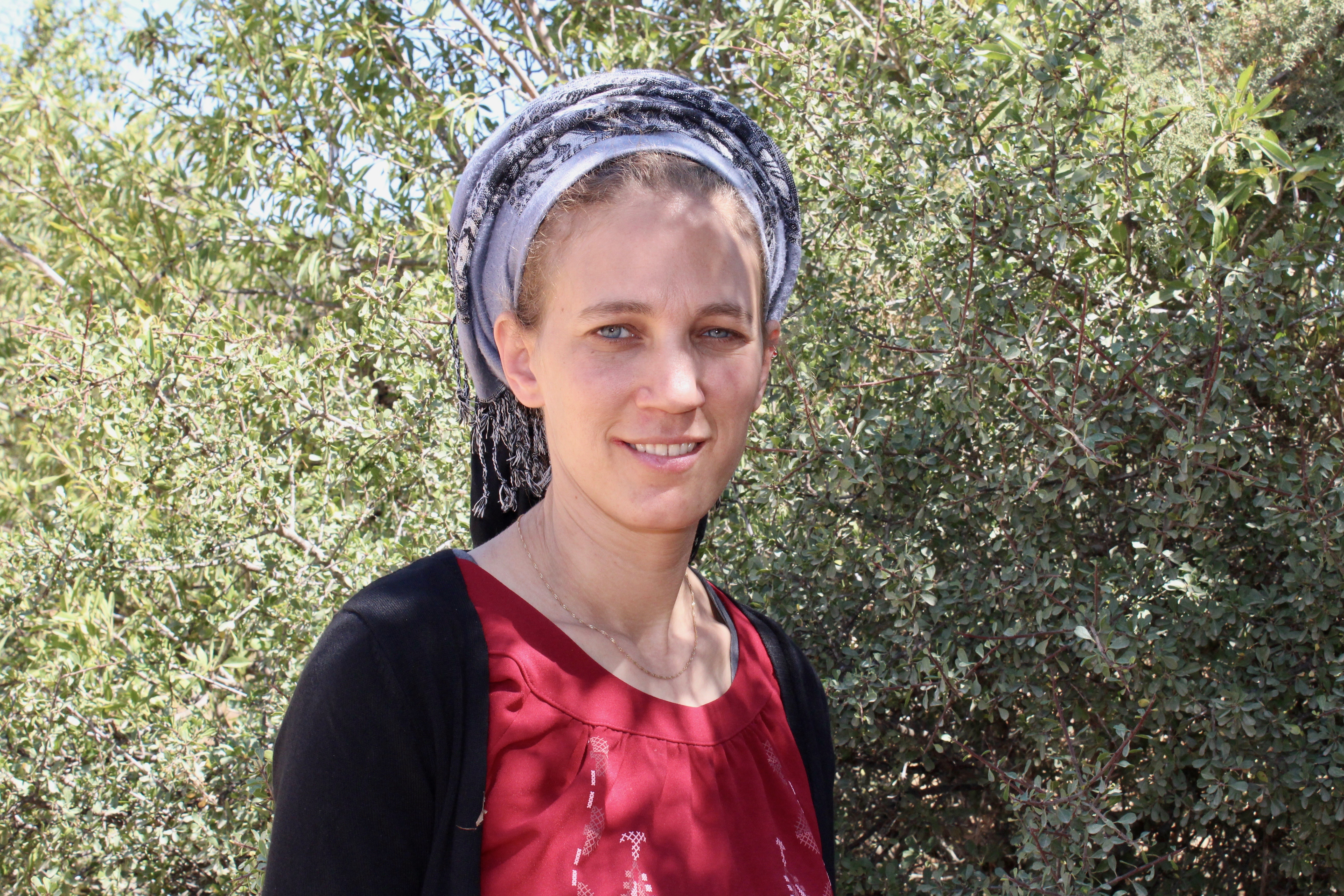
Nechama, Roots workshop participant
Dear Saskia,
A few weeks have passed since our workshop, and I have been feeling strongly the need to write you and let you know a little of my feelings throughout and after the workshop.
Meeting with Palestinians is a very new reality for me. I have grown up in this area of Gush Etzion, loving to my core this piece of land, connected to it with my soul. With all that love, I have also grown up with fear - and hate. I was in 12th grade during the Second Intifada, and that was just a more concentrated time of fear and pain than what had been going on for years in my life. My greatest fear was to meet a terrorist with a knife. Or to be shot at driving to school and back. I was afraid, and I hated. Hated because of a 13-year old sweet young boy in my community who was murdered, or my neighbor, a father of three who went to pray to God in the woods and didn’t come back. There are so many stories of pain, of terror, fear and hatred.
As I was growing up, into my 20s, very slowly I came to the realization that when I see Arabs, I do not see them as people, as individuals, but rather as the enemy, whom I was to be cautious of, maintain a distance, and eye nervously to be aware of any sudden movement from their side. I think the first time this really came to mind was in Rami Levi, the local supermarket that had Palestinian customers come in as well. For the first time in my life I stood behind an Arab waiting in line, and it was normal. I wasn’t (very) afraid. When two Arab women approached me to ask about kinds of shampoos - I was amazed, and happy to help. We couldn’t really have a conversation - we didn’t share a language, but I saw their faces, and their eyes, and they were just two women, for a moment, buying shampoo.
Slowly, just a little bit at a time, I became aware of the tragedy of my reality. I could open my eyes and see that there are people living here, loving this land as I do, who are humiliated, and estranged and hurting. I can understand their connection to this land. Being a religious woman, I can understand their intensity of faith.
But all of this happened mainly mentally. I had no encounter with Palestinians, it all seemed to be impossible, and too far away. I knew Shaul Judelman from years back, and I had heard about Roots and his activities with Palestinians. And I knew deep down that I should be there, reach out, listen and connect. But it was too much for me, too hard, too far out-of-my-world. It is only years later, after living three years abroad, that the time came for me to actually step forward.
My first
time at Roots I was fearful. To step into a Palestinian land and home was
unbelievable. I hesitated; I thought I would be better off just going back
home. But as I continued to walk forward I realized that I cannot keep on
living in this torn world, in this broken reality without doing my small little
part to fix it.
So I’ve been going to Roots this past year, and it is astounding and shocking, and amazing, and it mostly feels right. It is sometimes hard and confusing, and there are many questions that I am pondering, but I am sure of this direction.
What I was missing so very much is the connection with Palestinian women who, for the most part, do not come to Roots. When I heard of this workshop I was so happy to sign up. I was really looking forward to it.
The workshop was all I imagined and more. Saskia, you managed to create a safe space, and you talked about cameras, photos, composition. We were all just women, and none of us quite sure how to use the camera to its best use. As the days and hours went by, we became more comfortable with each other. To take a portrait of a Palestinian woman was truly special to me. Not noticing it at the time as I was busy with the mission by focusing on her face, noticing her beauty and trying to maximize the light and natural elements around us to capture that beauty. And in the conversation we had afterwards, to realize that she too, like me didn’t like to see herself in a photo, and had issues with her image as well. It was such a powerful experience.
Seeing the pictures of everyone from their homes, was also very special. Not only do I meet these women there, but to have a glimpse of their lives, their families, that was unique as well. And the closing session, where we all shared something about ourselves - that was so powerful, it really impacted us all, and the energy around. It wasn’t easy - hearing some of the stories as well as sharing painful realities. But it made our experience all the more real and not disconnected from our real lives.
I really connected with a Palestinian young woman. I felt sure we shared many common concerns and thoughts. We exchanged phone numbers, and we text occasionally. Before the workshop I could never have imagined it. The language barrier makes it all very difficult. But something did happen, something touched my heart.
There is still a tremendous gulf between us. The reality of our lives separates us so. But there was a chance there - that turned out to be possible; the chance to reach out and lift some of the darkness.
Saskia, I can’t tell you enough how so very important these workshops are. I know you put a great deal of effort to run them. You create such a comfortable space, you pay attention to everyone and really take the time to explain, to suggest, and to mentor. You are thoughtful and compassionate. That safe environment is so important.
Thank you so much for all you do, and especially for your time and effort running these workshops. You can never know what the seeds you plant will grow up like, but be assured that you have planted many seeds - of trust, of belief, of love.
Thank you,
Nechama
So I’ve been going to Roots this past year, and it is astounding and shocking, and amazing, and it mostly feels right. It is sometimes hard and confusing, and there are many questions that I am pondering, but I am sure of this direction.
What I was missing so very much is the connection with Palestinian women who, for the most part, do not come to Roots. When I heard of this workshop I was so happy to sign up. I was really looking forward to it.
The workshop was all I imagined and more. Saskia, you managed to create a safe space, and you talked about cameras, photos, composition. We were all just women, and none of us quite sure how to use the camera to its best use. As the days and hours went by, we became more comfortable with each other. To take a portrait of a Palestinian woman was truly special to me. Not noticing it at the time as I was busy with the mission by focusing on her face, noticing her beauty and trying to maximize the light and natural elements around us to capture that beauty. And in the conversation we had afterwards, to realize that she too, like me didn’t like to see herself in a photo, and had issues with her image as well. It was such a powerful experience.
Seeing the pictures of everyone from their homes, was also very special. Not only do I meet these women there, but to have a glimpse of their lives, their families, that was unique as well. And the closing session, where we all shared something about ourselves - that was so powerful, it really impacted us all, and the energy around. It wasn’t easy - hearing some of the stories as well as sharing painful realities. But it made our experience all the more real and not disconnected from our real lives.
I really connected with a Palestinian young woman. I felt sure we shared many common concerns and thoughts. We exchanged phone numbers, and we text occasionally. Before the workshop I could never have imagined it. The language barrier makes it all very difficult. But something did happen, something touched my heart.
There is still a tremendous gulf between us. The reality of our lives separates us so. But there was a chance there - that turned out to be possible; the chance to reach out and lift some of the darkness.
Saskia, I can’t tell you enough how so very important these workshops are. I know you put a great deal of effort to run them. You create such a comfortable space, you pay attention to everyone and really take the time to explain, to suggest, and to mentor. You are thoughtful and compassionate. That safe environment is so important.
Thank you so much for all you do, and especially for your time and effort running these workshops. You can never know what the seeds you plant will grow up like, but be assured that you have planted many seeds - of trust, of belief, of love.
Thank you,
Nechama
Sarah Mandel, Roots workshop participant
Saskia’s natural warmth and charm made everyone feel comfortable. She brought the group together, taught us how to use the cameras and then encouraged everyone to experiment and explore at their own pace. The sessions were a fantastic opportunity to learn more about photography and to get to know the other women.
Saskia’s flexibility and enthusiasm kept us all involved, even in the face of some logistical challenges. In a calm, nurturing and safe environment the photography was a basis for an encounter with the Other in the conflict, who we would never otherwise be able to meet. I found it particularly powerful to take photos of the other women, as when you set up a photograph in your camera lens, you examine and consider the subject in a totally different way than when you are just looking at them.
I would highly recommend Saskia’s workshop to anyone and look forward to her return so that more women can benefit from them.


Colleen Dodson Baker, Pico Union Project workshop participant
The way Saskia merges the art of photography with the necessity of embracing others is seamless. By the end of the first session, she had developed a specific connection with each student, which grew deeper throughout the week, inspiring and motivating us all, individually and as a group.
The “With New Eyes” workshop was beautifully orchestrated. Each session built on the one before, with challenges and surprises along the way. It was a Master Class in staying focused, being present, trusting creativity, taking risks and loving one another.
I’m forever grateful that I was part of it and that my life has crossed paths with Saskia.
Uwimana Aisha Radellant, Women's Prison Association workshop participant
We live in a complex world, filled with an abundance of beauty. I was blessed to capture some of its awesome magnificence when given a once-in-a-lifetime opportunity to work with an amazing photographer and equally amazing person by the name of Saskia Keeley.
Saskia shared her expertise, professional equipment, assistant, and more importantly her heart with complete strangers. Saskia gave us the opportunity to tell our story, through the lens of the cameras she entrusted to us. In doing so she gave us the chance to explore and capture our world through the medium of photography.
Saskia’s photography workshop has been one of the most beautiful experiences of my life. If fortune smiles on you and you are given the chance to work with Saskia, don’t think twice, just do it! It’s an experience you will treasure for life.


Rasheea Williams, Pico Union Project
workshop participant
When we started this photography class, we did not know each other.
Over the four sessions, we learned what made each of us tick and formed some bonds.
By sharing our stories, we also learned that all of us, Jewish, Protestants, different racial and cultural backgrounds, have more in common than we may think.
We share the same concerns about our families and our places in the world. We have all suffered some traumas. The first step of opening up to strangers and allowing yourself to be vulnerable is the most important.
Craig Taubman, Founder of the Pico Union Project
The idea was simple. Take Saskia’s photojournalist project which pairs Palestinian and Israeli women who use the lens of a camera to get to know each other and bring it to the 16 people from diverse cultures and faiths at the Pico Union Project. Such is life. You plan. Hope for the best. Try to anticipate the unexpected, and every once in a while, you are given the most precious of gifts - surprise and wonder.
All of the planning and conversations could never have captured the essence of this truly wonderful artist, and the remarkable way she is able to bring out the humanity of others.
I could tell you what happened in more detail, but the more exciting truth is that I have no idea what she can do with your group – other than to bring out the best that all of us have to bring and give. The idea is simple. Partake of the gift, you will be rewarded many times over.
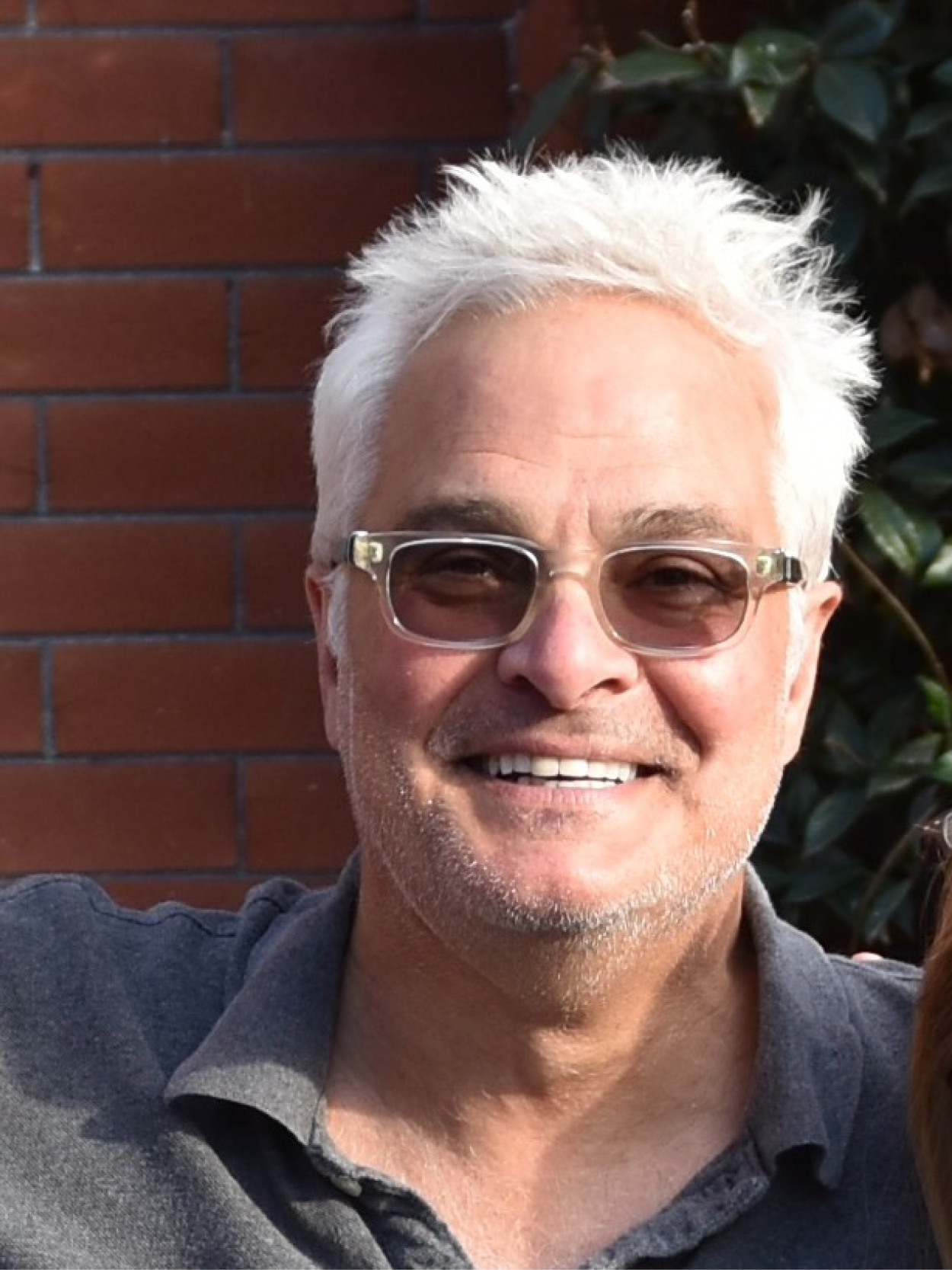

Rabbi Hanan Schlesinger, Roots Co-Founder & Director of International Relations
The first set of photo workshops took place during the summer of 2016 and since then Saskia has returned to Roots every single summer.
It would be an understatement to say that we are thrilled with Saskia. She's created a whole new methodology of bringing people - enemies - together by looking at each other through the lens of the camera. The micro-transformations that many of the women undergo, in which the hard outer shell of exclusivist identity begins to crack, are breathtaking. The women begin to open up to each other and to imagine what it is like to live the other's life. Empathy begins to appear on the horizon.
The power of the camera is even greater than I'd thought. Saskia's methodology combines group dynamics with storytelling, and a certain type of interpersonal therapy. Every year she comes back with the same integrity, focus and dedication, but also with new insights and techniques. More and more women join and are affected, and the influence of the workshops spreads.
I cannot wait to see what the future holds, as Saskia's camera and her facilitation reach more and more people. An investment in Saskia's work is an investment in a more humane, a more empathic and a more caring society.
Diana McHugh, Director of Communications for the Women's Prison Association
Saskia’s workshop was the perfect addition to WPA’s Women’s Leadership & Media Project. Saskia was a thoughtful planner who kept things simple for us while also honoring our adherence to trauma-informed and gender-responsive practices. She incorporated these practices into her workshop which felt tailored to our group at every step.
She was trustworthy, flexible, and available to both our staff and clients throughout the entire process. The women in the class were drawn to her sincerity and I to her professionalism.
The workshop was a beautiful dive into storytelling via photography. Saskia’s careful and patient instruction made it easy for the women to learn the cameras, engage in storytelling, and trust themselves to capture their stories through a new and creative medium.
Though our class didn’t require internal conflict resolution, the women still stretched, grew, and bonded as a group, which was, perhaps, the most meaningful outcome of the workshop – even more so than the incredible photographs the women produced!

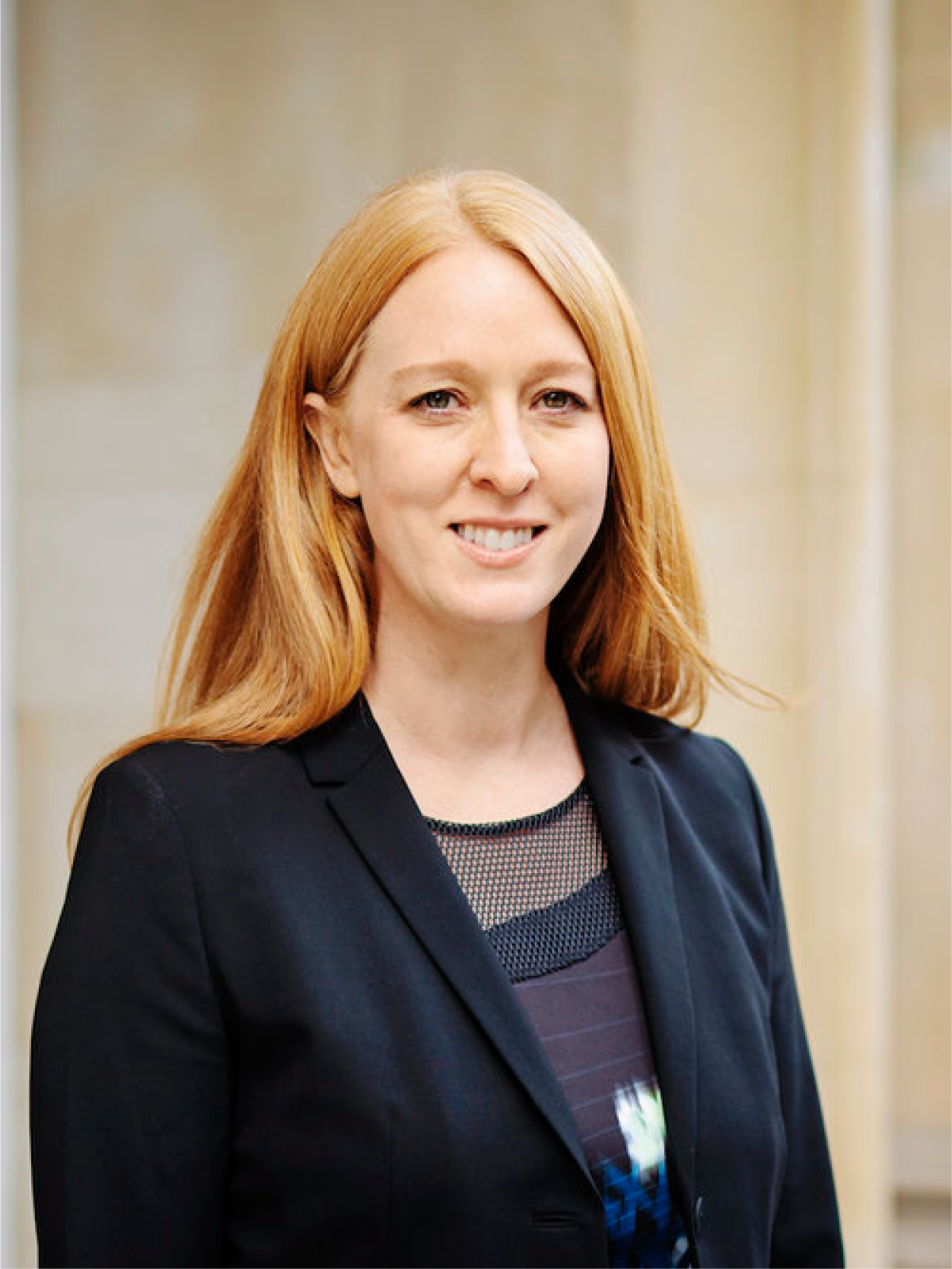
Ellen Agler, CEO of The END Fund
Saskia integrates and connects well with the local community, and her photos are stunningly beautiful.
She was able to garner the trust and confidence needed to take the very intimate photos of people suffering from stigmatizing and disabling diseases, while also managing high-level relationships with Ministry of Health staff and village leaders to ensure that everyone understands her role and goals.
The END Fund has used Saskia’s photos to help raise awareness not only about our work in the DRC, but in our annual report, website and other reports to highlight partners and progress toward controlling and eliminating the five most prevalent NTDs that affect over 1.5 billion people globally. Saskia has been a wonderful partner for the END Fund, and I would highly recommend her as a partner for any high-impact, social change organization.
Olivia Ildefonso, Board Member for S.T.R.O.N.G Youth
We have tried many strategies to empower our kids and give them the tools to realize that even though they were dealt a difficult hand of cards, they can persevere and make positive changes in their lives and their communities. Out of all the workshops that I’ve been involved with to date, I can honestly say that none have been as effective as the workshop that Saskia led with our kids.
While these teenagers have seemingly come from entirely different worlds - some have fled poverty and violence in their home countries, while other have grown up in the most affluent zip codes in the U.S. - the cameras gave them a way to be seen by each other and develop common understandings.
Saskia skillfully created a safe and welcoming environment that allowed the youth to be vulnerable with one another. During the first day, no one wanted to talk at all, but once they were given the cameras and were told to take each other’s portraits the tension quickly started to dissipate. And the portraits that they produced were stunning!
More importantly, throughout the workshops, they also reflected on the aspects of themselves that the photos were able to capture and the sides of themselves that remained hidden from view.
We were often brought to tears by their reflections and their deep sense of self. To say that these workshops were powerful, would be an understatement. We look forward to working with Saskia more in the future!
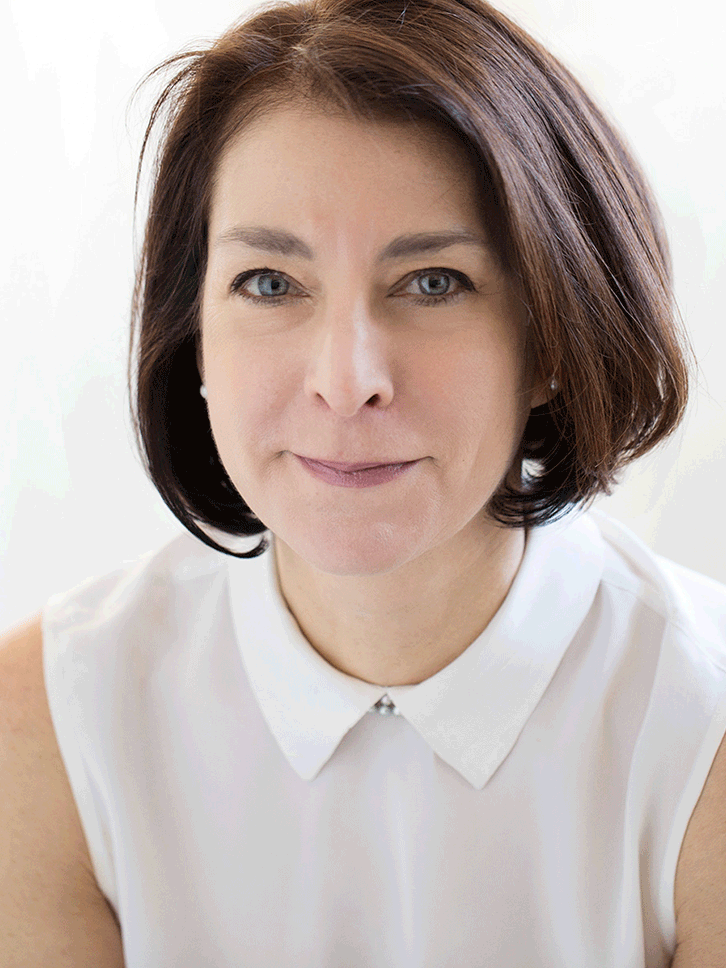
Alison Davis Curry
I was present for the workshops, supporting Saskia in her work and documenting the workshops. I watched the kids as they entered, fearful, self-contained and distracted. They used their cell phones as shields from the group. Many spoke only Spanish and through translators. The kids subdivided in groups, not into two groups from different communities, but into sub-groups within those communities, in pairs, and in isolation.
During our collaborative sessions, working with their partners and the camera, the kids came to see their own fears and facades, and to recognize their mutual similarities. Simples acts engaged the children: looking through the camera, posing for the camera, selecting and sharing photographs with the group. Challenging tasks: creating a narrative around the photographs, and consideration for the “masks” they wear to project the face they want the world to see, and the “selves” they hide behind that mask.
An introspective act to create, an extrospective act to share, these exercises broke stereotypes the children identified as creating their personas in the world, vs the inner-selves they hide beneath their masks.
The fourth session, when the work was shared, was joyous and harmonious. A hugely different mood from the one we walked into just a month before. A recurring motif of concern from the children was the negative images of Brentwood, and the way they are stereotyped based on where they live and what they look like.
